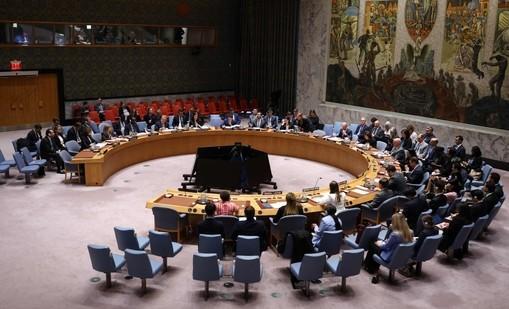
Was LeT involved? UNSC asks Pak on J&K attack, refuses to accept ‘false flag’ claim
In a recent closed-door meeting, the United Nations Security Council (UNSC) members gathered to discuss the recent attack on tourists in Pahalgam, Jammu and Kashmir. The meeting was requested by Pakistan, which had aimed to push its “false flag” narrative on the attack. However, the UNSC members refused to accept Pakistan’s claim, and instead, raised questions about the involvement of the Lashkar-e-Taiba (LeT) terrorist outfit, which is based in Pakistan.
The Pahalgam attack, which took place on October 1, left several tourists injured, including foreigners. The attack was widely condemned by the international community, and India attributed it to Pakistan-based terror groups.
Pakistan, however, had claimed that the attack was a “false flag” operation, orchestrated by India to tarnish its image. Pakistan’s Foreign Office spokesperson, Zahid Hafeez, had stated that the attack was a “fabricated incident” designed to “divert attention from the Kashmir issue.”
However, the UNSC members were not convinced by Pakistan’s narrative. According to reports, some members of the council expressed skepticism about Pakistan’s claim, and instead, questioned whether the LeT, which has a history of carrying out attacks in Jammu and Kashmir, was likely to be involved in the attack.
The UNSC members also brought up the targeting of tourists on the basis of religion, which is a serious concern. The attack on the tourists in Pahalgam was widely condemned by human rights organizations and governments around the world, which emphasized the need for Pakistan to take concrete action against terrorist groups operating from its soil.
Pakistan’s “false flag” narrative has been repeatedly debunked by India and other countries. In the past, Pakistan has been accused of using “false flag” operations to carry out attacks in Jammu and Kashmir, and then blaming them on India. This has been a long-standing pattern of behavior, and the international community has consistently condemned Pakistan’s actions.
The UNSC meeting comes at a time when tensions between India and Pakistan are high. The two countries have been engaged in a diplomatic standoff since the Pulwama attack in February 2019, which killed over 40 Indian security personnel. Since then, India has been pushing for Pakistan to take action against terrorist groups operating from its soil, and to bring perpetrators of terrorist attacks to justice.
Pakistan, on the other hand, has been denying any involvement in the Pulwama attack, and has instead accused India of carrying out a “false flag” operation. However, the international community has not been convinced by Pakistan’s claims, and has instead called for concrete action against terrorist groups.
The UNSC meeting is a significant development in the ongoing diplomatic efforts to address the issue of terrorism in Jammu and Kashmir. The fact that the council members refused to accept Pakistan’s “false flag” narrative is a clear indication that the international community is not buying Pakistan’s excuses.
Instead, the UNSC members are urging Pakistan to take concrete action against terrorist groups operating from its soil. This includes designating and dismantling terrorist organizations, arresting and prosecuting their leaders, and preventing them from using Pakistani territory to carry out attacks in Jammu and Kashmir.
In conclusion, the UNSC meeting is a clear indication that the international community is not willing to accept Pakistan’s “false flag” narrative on the Pahalgam attack. Instead, the council members are urging Pakistan to take concrete action against terrorist groups operating from its soil, and to bring perpetrators of terrorist attacks to justice.
The fact that the UNSC members are questioning the involvement of the LeT in the attack is a significant development. The LeT has a long history of carrying out attacks in Jammu and Kashmir, and its involvement in the Pahalgam attack would be a serious violation of international law.
Pakistan must take immediate action to address the concerns raised by the UNSC members. This includes taking concrete action against the LeT and other terrorist groups operating from its soil, and preventing them from using Pakistani territory to carry out attacks in Jammu and Kashmir.
The international community is watching Pakistan closely, and is waiting for concrete action to be taken against terrorist groups. Pakistan’s inaction would only lead to further isolation and condemnation.



